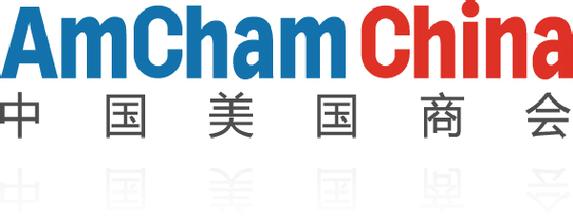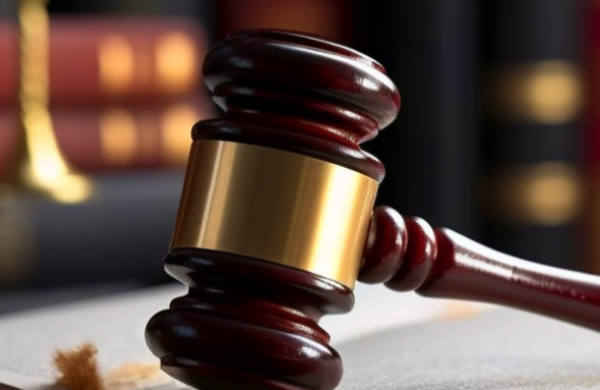Did not receive verification mail? Please confirm whether the mailbox is correct or not Re send mail

IPR Daily
- 2016-12-04 00:21:56
THE AMERICAN CHAMBER OF COMMERCE IN CHINA EXPOSED

Purportedly, representing the American Business community in China since 22nd April 1991, the Chinese American Chamber of Commerce, who like to call themselves the American Chamber of Commerce in China, have on occasion been parties to fraud and deception.
In this article we will reveal some things about the American Chamber of Commerce in China and we will let you decide their fitness to represent the American Business community in China.
Once Upon a Time in Beijing
In 1996, an entity called the American Club of Beijing was incorporated in the Commonwealth of Pennsylvania. People often referred to it as the American Club. This entity was filed as a 501(c) company in the USA, which means that it did not operate for a profit. In fact, it was founded much earlier as an unincorporated association and dates back to 1979, shortly after diplomatic relations between the USA and China were established.
The American Club of Beijing mostly comprised of American business people, American Diplomats and their spouses. The purpose of the American Club of Beijing was to perform charitable, cultural, social and educational events for the American Community. From time to time the American Club of Beijing would organise trips to orphanages, and introductions to Chinese culture.
In 2008, James Zimmerman, then President of the American Chamber of Commerce in China instructed James Haynes of Tee & Howe to contact Edward Lehman of the American Club of Beijing, with a view to buying some trademarks that the American Club of Beijing owned in China. Both James Haynes and James Zimmerman are qualified as lawyers in the USA. The trademarks consisted of the word AmCham in various styles. The trademarks were registered by the American Club of Beijing under the name “American Club.”
On 9th January 2009, Lehman telephone Haynes to warn him that the American Chamber of Commerce in China was infringing on his intellectual property rights. Lehman warned Haynes to advise his client to stop the infringement or further legal action would follow.
On 14th January 2009, Zimmerman requested a meeting between Lehman and Haynes. The meeting was to discuss the transfer of the AmCham trademarks. At this point we ask you:
· If Zimmerman asked for a meeting to transfer the AmCham trademarks, did Zimmerman know the trademarks belonged to the American Club of Beijing?
· Furthermore, did Zimmerman know that Lehman represented the American Club of Beijing?
· Did Haynes know the answers to these questions?
On 16th January 2009, Haynes sent an email to Lehman thanking him for purportedly agreeing to transfer the trademarks. He even went as far as to draw formal assignment papers to effect the transfer of the trademarks.
On January 19th 2009, Haynes emailed Lehman once more to advise him that the American Chamber of Commerce in China was taking steps to cancel the trademarks of the American Club of Beijing. He then went on to say that Zimmerman had told him in an email dated 16th December 2008, that Lehman had agreed to make a transfer of the trademarks. Finally and most damning for the reputation of the then leadership in the American Chamber of Commerce in China is that they had scheduled meetings to discuss the issue of the trademarks.
· Do you think that the whole of the American Chamber of Commerce in China was aware of the proposed transaction to purchase the trademarks from the American Club of Beijing?
· Is it logical to presume that Zimmerman was aware of all the main facts surrounding the trademarks?
· Is it logical to presume that Haynes was aware of all the main facts surrounding the trademarks?
On 18th March 2009, the General Legal Counsel to the American Chamber of Commerce in China, Nathan Bush, contacted Lehman. Bush wanted to know if Lehman could meet with him and John Watkins, the then Chairman of the American Chamber of Commerce in China to discuss the transfer of the trademarks from the American Club of Beijing to the American Chamber of Commerce in China.
· Why did the American Chamber of Commerce in China want to obtain the trademarks and why did Lehman not want to transfer them on behalf of the American Club of Beijing of Beijing?
We may not have all the answers, but we do have some. We can refer to an email dated 30th March from Lehman to Bush and Watkins, in their roles as officials of the American Chamber of Commerce in China. In that email Lehman mentions other American Chamber of Commerce in Chinas of Commerce in China, which are grass root organisations. Lehman infers that by transferring the licence, he would be affecting the sovereignty of those other American Chamber of Commerce in Chinas of Commerce. To resolve matters, Lehman offered the American Chamber of Commerce in China a non-exclusive licence to use the trademarks, with some minor preconditions.
· Did Lehman make a fair offer?
· Did the American Chamber of Commerce in China have any pre-existing right to the trademarks?
· Could Lehman have asked for money in exchange for a licence? Did he?
Meanwhile Back in the USA
In or around 1980, a lady inherited an unincorporated business going by the name American Club. Her name was Carole E. Bowers. By 2009, she was rather elderly and is unknown to have left Pennsylvania, let alone the United States.
The American Club had been founded in the 1940s by Bower’s mother. It was a correspondence American Club of Beijing that had been started by family and friends.
On 19th May 1980, Bowers registered the unincorporated business with the Pennsylvania Department of State Corporations Bureau. For the whole history of the business it was operated as a sole proprietorship.
· Does the name of the business remind you of anything?
The name should remind you of an entity operating in Beijing, discussed earlier. Haynes had discovered this and decided to take advantage of the situation. In particular, he took advantage of the fact that the American Club of Beijing had registered the trademarks under the name “American Club” and so he went to the American Club to ask Bowers to transfer the trademarks.
Now, Bowers had never been to China. The registered addresses of the American Club and the American Club of Beijing were different; their employees were different; and their very legal natures were different – one entity was a corporation and the other was unincorporated. This situation involves some very basic issues of fact and company law.
· Had Haynes been corresponding with Lehman?
· Had Haynes previously drafted a trademark assignment with the American Club’s details on it?
· Was it reasonable to assume that Bowers and Lehman were part of the same entity?
On 10th April 2009, Haynes visited Bowers. Haynes, who is a qualified lawyer in Texas, asked Bowers to sign a transfer document for the trademarks. He offered her $1,000 for her to sign the transfer and she – a little old lady of limited means, who had never been to China – accepted.
· Did Haynes know Lehman and Bowers?
· Had Haynes been in contact with Lehman for many months before 10th April 2009?
· Did Haynes know that the American Club of Beijing and the American Club were different entities with similar names?
· Did Haynes get Bowers to transfer property that did not belong to her?
· Did Haynes, as a lawyer, know the difference between the American Club of Beijing and the American Club?
· Is Haynes acting in an honest way?
Now before we move on, we must not forget that Haynes was simply an agent; an agent of the American Chamber of Commerce in China. Which, the emails we have seen suggest, was greatly under the influence of Zimmerman. Various officials and board members of the American Chamber of Commerce in China had contacted Haynes and Lehman on several occasions in an attempt to move forward a deal regarding the transfer of the AmCham trademarks, but Zimmerman as President and President Emeritus had a particular hand in matters. Haynes was acting for the American Chamber of Commerce in China and on their behalf and he was under a duty to report to them.
· Do we think that the American Chamber of Commerce in China knew about what he did?
· Where do we think the $1000 paid to Carole bowers came from?
· Is it likely that if various board members and officials of the American Chamber of Commerce in China were aware of the situation involving Bowers, that Zimmerman was unaware?
Back to Beijing
Once Haynes got back to Beijing, he arranged by way of Tee & Howe for the transfer of the trademarks from the American Club of Beijing to the American Chamber of Commerce in China. The American Club of Beijing lost its trademarks due to a former quirk in the Chinese trademark registration system.
On or about April 2010, Lehman discovered that the trademarks of the American Club of Beijing had been transferred to the American Club. On 13th May 2011, a lawsuit was filed at the Beijing First Intermediate Court by the American Club of Beijing. During this lawsuit, Lehman discovered how Haynes was able to effect the transfer of the trademarks.
Eventually, to defeat the claims of the American Club of Beijing, the American Chamber of Commerce in China through its then President Michael Barbalas arranged for the cancellation of the AmCham trademarks, through Tee & Howe. By destroying the original subject matter and re-registering “fresh” trademarks the American Chamber of Commerce in China was hoping to make their problems go away. However, litigation is still ongoing.
On 11th September 2014, a lawsuit was filed by Lehman on Behalf of the American Club of Beijing in the Commonwealth of Pennsylvania. Interestingly, the court said:
“Neither Bowers, nor her registered fictitious name “American American Club of Beijing ,” nor any entity owned or controlled by her ever applied for or was awarded any “AmCham” marks whatsoever.
Haynes and the American Chamber of Commerce in China of Commerce in the People’s Republic of China subsequently used the documents signed by Bowers to perpetrate a fraud upon the Chinese Trademark Office and to steal the marks…”
So, now we leave you with some final questions:
· What should happen to the trademarks obtained by fraud?
· Should they stay with the fraudster or should they be returned to Lehman?
· Are the officials of the American Chamber of Commerce in China criminals?
· What should be done with Haynes?
· What should be done with Zimmerman?
Ironic Fact
The American Chamber of Commerce in China has an IPR forum that:
“advocates for a fair and strong pro-IP environment within China and provides members with information on intellectual property related issues and regulations. The forum does this through events and meetings.”
From | LEHMAN LEE & XU
Editro | Judy
- I also said the two sentence
- Also you can enter 140words
 TOP IPR U.S. Lawyers 10 & Firms 10 Selection Officially Launched by IPR Daily
TOP IPR U.S. Lawyers 10 & Firms 10 Selection Officially Launched by IPR Daily WIPO Global Innovation Index 2025: China Enters Top 10
WIPO Global Innovation Index 2025: China Enters Top 10 Singapore ranks 5th in the 2025 Global Innovation Index; climbed two spots in Innovation Outputs
Singapore ranks 5th in the 2025 Global Innovation Index; climbed two spots in Innovation Outputs Federal Circuit lacks jurisdiction over award that doesn’t raise issue of patent law
Federal Circuit lacks jurisdiction over award that doesn’t raise issue of patent law


